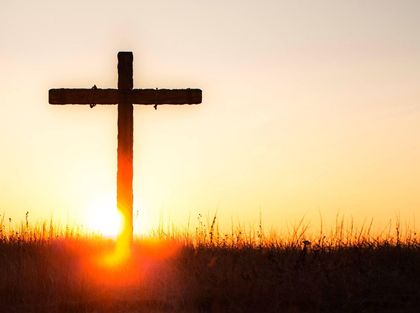A beginner's guide to theology.

Theology.
What a word!
Nowadays it’s almost become a cuss word, a synonym of some kind of lethal spiritual disease. I don’t know how many times I’ve heard theology being slammed from evangelical pulpits over the years. So, what’s it all about? I hope this article serves to clear up some of the confusion.
First of all, let me kick off by pointing out that theology isn’t a swear word or a mortal sickness. It’s a compound word i.e. a word composed of others.
Football, fireworks, moonlight and earthquake are examples. The two words that make up ‘theology’ are ‘the study of’ and ‘God’. Therefore, theology –at least etymologically- is the study of God.
Theology is a necessary part of our Christian lives for three reasons.
Firstly, it helps us identify and refute heresies.
Secondly, studying doctrine sanctifies our minds so that we may fulfil the command of Christ to live Him with all our minds in Matthew 22:37.
Thirdly, it allows us to go deeper into the blessed truths of God’s inerrant Word leading us away from the pitfalls of a superficial spiritual life based upon emotionalism and human wisdom.
So, now that we’ve defined theology and defended its usefulness, we can proceed to mention the main points of theological system. If the truth be told, pretty much any book on systematic theology can be divided up into the following six points.
Ready? Let’s get cracking!
1.- Theology Proper
Theology Proper refers to God Himself. It’s the study of God. God as He has revealed Himself to be. In this opening category, we study both about the personhood and works of the Lord.
Here we can expect to learn about the Trinitarian nature of God and His communicable and incommunicable attributes. Communicable attributes are those attributes the Lord shares with humankind (goodness, mercy, love, etc.) whereas the incommunicable ones are limited to God alone (eternity, omniscience, immutability, etc.).
As a general rule the doctrine of creation also forms part of Theology Proper. However, some tomes reflect upon creation in their Anthropology section.
The study of creation involves such themes as the beginning of the universe, the existence of angels and demons, etc.
2.- Anthropology
Anthropology means the study of men (women). It starts with the doctrine of creation of Adam and Eve in the Garden (Genesis 1:26) and usually entails an analysis of what it means to be made in the “image and likeness” of God.
 The Lord created humankind in His own image and likeness.
The Lord created humankind in His own image and likeness.A controversial theme with regards to Anthropology is the whole debate over humanity’s essential nature. Is man a two-part or three-part being?
That is, are soul and spirit independent from one another or are they the one and same reality?
Perhaps the most transcendental theme with respect to Anthropology is the Fall and the consequences of human sin.
In some systematic theologies, the doctrine of sin is studied in a different chapter; but most have traditionally subsumed it under the heading of Anthropology.
3.- Christology
You guessed it! Christology means the study of Christ. Christology is normally quite straightforward. The key conviction underlying evangelical Christology is that Jesus is one hundred per cent man and one hundred per cent God.
Believers are convinced was a lot more than a charismatic religious guru; He was actually the second person of the Trinity made manifest in flesh.
Christology also deals with the meaning of various titles of Christ like Son of God, Son of Man, Messiah, Saviour, Servant, Lord, etc. All of these terms help shed more light on the blessed person of Christ.
 Christ is the central theme of the Old and New Testaments.
Christ is the central theme of the Old and New Testaments.
4.- Soteriology
Soteriology is a word that’s a little bit weirder. It means the study of salvation. It’s an extension of Christology in that it centres itself upon what Jesus did in order to redeem us by means of His incarnation, atoning death and resurrection.
Nevertheless, Soteriology doesn’t just investigate what Christ did for us objectively but it also hones in upon what the Spirit of God works in us subjectively.
The Spirit, of course, is He who applies the impeccable work of Christ to us so that we may be truly saved.
Concerning Pneumatology (the doctrine of the Spirit), some of the more recent systematic theologies have a separate chapter dedicated to the topic.
Within the doctrine of the Spirit, a polemical issue is the renowned ordo salutis, viz., the order of salvation, which alludes to predestination, calling, foreknowledge, regeneration, faith, repentance, justification, sanctification and glorification.
Folk from a Reformed background tend to ground salvation on the eternal decree of God. God saves us because He willed to. Arminians, however, believe that the Lord saves on the basis of His foreknowledge, that is, He redeems those whom He foresees will choose Him.
5.- Ecclesiology
Ecclesiology refers to the doctrine of the church. Those are saved by Christ are not left alone once redeemed but called by the Spirit to form part of the church (the spiritual body of Christ).
The most important topics in Ecclesiology are the different systems of church government, ministry and the ordinances (baptism and the Lord’s Supper).
 The Lord calls us to be members of His beloved church.
The Lord calls us to be members of His beloved church.Towards the end of the twentieth century there was an ever growing interest in Missiology (the doctrine of missions) as the churches realized how important it is to keep proclaiming the Gospel until Christ’s Second Coming. The Gospel must be preached to all nations and ethnic groups!
6.- Eschatology
The final point is the most complicated chapter of all. Perhaps there is no subject area so hotly debated in theology as that of Eschatology (the doctrine of the end times or the last things).
It’s certainly an exciting area of theology, but one where divisions abound. One such idea is that of the millennium. Does Christ come before the millennium begins (as Pre-Millennialism teaches) or after (as Post-Mills and A-Mills suggest)?
Other spicy matters are the Rapture, the identity of the Anti-Christ and the Great Tribulation.
Having said that, there are certain cardinal principles that are crystal clear, namely, the Second Coming of Christ; eternal life for the justified and eternal condemnation for the wicked.
Eschatology is a huge academic field where every kind of theory imaginable abounds. The best piece of advice is to cling on to the essentials we’ve just mentioned and to show love and humility with regards to more complicated questions.
At the end of the day, we’re all saved by the blood of Christ; not by eschatological presuppositions.
Conclusion
So, I hope that’s served to clear up matters somewhat. Before signing off, I should also make mention of the fact that more and more systematic theologies are now starting off their books with an initial chapter upon Bibliology (the doctrine of the Bible), especially due to the great debates regarding the inerrancy of Scripture from the sixties and seventies onwards.
May the Lord use theological study to make you love Him ever more each day and birth in you an all-consuming passion for the glory of the Lord Jesus Christ in all things.

Las opiniones vertidas por nuestros colaboradores se realizan a nivel personal, pudiendo coincidir o no con la postura de la dirección de Protestante Digital.
Si quieres comentar o